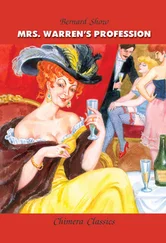The Sonnets
Warwick Collins

The Friday Project
An imprint of HarperCollins Publishers
1 London Bridge Street
London SE1 9GF
www.harpercollins.co.uk
First published by The Friday Project in 2008
This edition published by The Friday Project in 2015
Copyright © Warwick Collins 2008
Warwick Collins asserts the moral right to be identified as the author of this work
A catalogue record for this book is available from the British Library
Although this is a work of fiction and the product of the author’s imagination, it is based on/inspired by real historical events and, therefore, some of the characters portrayed herein are based on real people. However, any resemblance to any persons, living or dead, events or localities who are unconnected with the historical event is entirely coincidental.
All rights reserved under International and Pan-American Copyright Conventions. By payment of the required fees, you have been granted the nonexclusive, nontransferable right to access and read the text of this e-book on-screen. No part of this text may be reproduced, transmitted, downloaded, decompiled, reverse engineered, or stored in or introduced into any information storage and retrieval system, in any form or by any means, whether electronic or mechanical, now known or hereinafter invented, without the express written permission of HarperCollins e-books.
HarperCollinsPublishers has made every reasonable effort to ensure that any picture content and written content in this ebook has been included or removed in accordance with the contractual and technological constraints in operation at the time of publication.
Source ISBN: 9780007306190
Ebook Edition © MARCH 2015 ISBN 9780007379996
Version: 2015-03-31
To Chris Owen
Cover
Title Page
Copyright
Dedication
Chapter 1
Chapter 2
Chapter 3
Chapter 4
Chapter 5
Chapter 6
Chapter 7
Chapter 8
Chapter 9
Chapter 10
Chapter 11
Chapter 12
Chapter 13
Chapter 14
Chapter 15
Chapter 16
Chapter 17
Chapter 18
Chapter 19
Chapter 20
Chapter 21
Chapter 22
Chapter 23
Chapter 24
Chapter 25
Chapter 26
Chapter 27
Chapter 28
Chapter 29
Chapter 30
Chapter 31
Chapter 32
Chapter 33
Chapter 34
Chapter 35
Chapter 36
Biographical Note
Afterword
About the Publisher
M Y LORD SOUTHAMPTON, at the lake that day, removed his garments, wading in silence to deeper water. In hungry dawn his slender frame, already bearing scars and calluses of fearful games and hunts, seemed to pause and flicker. A heron stood on the neighbouring bank, observing the edge of the shallows. Against that human figure a bird’s shadow, hovering over water, preparing to strike at waiting fish, would not have seemed more ghostly or more pale. There my lord waited, hardly moving, suspended in the heron’s eye, as though lost in invisible thought.
I, standing on the shore, observed how light became flesh, seeming to pause and thicken. Water covered his thighs, his lower back. From the bank I considered him as he walked further into the lake, until it lapped his shoulder blades. I continued to observe him as he waded deeper into that periphrastic calm. The liquid line rose until, once level with shoulder and neck, he began to swim, both languidly and strongly.
Out there he seemed impalpable. Only his head appeared, floating on the surface. Under the dawn light he moved alongside his own reflection, touching ghost to liquid ghost, leaving a soft wake which formed and glimmered like an arrowhead.
Instead it was I – the watching man, the unquiet one – who took up my usual position, holding the reins of both our nervous horses. Part of that mind which lives in shadow now became alert. I remained constantly fretful – the silent waiter at the water’s edge.
Standing between the horses in that calm, with a warm and breathing beast on each side of me, I sensed the shudder of their animal spirits. Both seemed tense. My own gelding stood still, occasionally reaching down to feed. But beside me the stallion stamped and neighed softly, dancing on his hooves, restless as any child who wants to play. He was in perpetual motion, never still. I felt him strain, then call forth his challenge. His long whinny reached out across the tranquil earth and water. Holding their reins, I listened for that thread of silence which the horses could perceive. And then I heard, as though in answer, another horse’s call, as clear as a bugle note, from half a mile away; from some dark stretch of woodland, some invisible valley. Strange sound! It might as easily have come from a mythical, hidden underworld.
During those times when the London theatres were closed, curtailed by plague, I too was nervous, aware of my own vulnerability. My scribbling of plays had no market, and I could not even work upon the stage. It is true that poets often live at the edge of starvation – vulnerable as song birds to winter’s cold – but those days were the worst.
By some strange alchemy, my lord’s very confidence rendered me more sensitive. On his behalf sometimes I felt we were overlooked, or that another party spied on him. Sometimes I heard a horse neigh, far away, and once I saw three riders on a hill – distant, pricked out by light – observing us in what seemed like lucid concentration.
He began to swim now into the deeper part of the lake, so that the shadow of his body dissolved in the water. Only his head appeared, like a bust, floating on the milky surface. I stood a little back from the bank’s edge, ever-watchful.
Though he was my patron, I continued to chafe at his recklessness. For these were dangerous times, with many eddies of insurrection around our Protestant Queen. His family retained their allegiance to the Catholic Church. In their midst, he moved with peculiar ease, and feared nothing.
Out on the water, my lord turned, treading water, and looked back towards the silent land. Could he perceive me, soberly coloured against the darker earth? Even at that distance, I could see there was amusement in his expression. He called out, ‘Will you not swim, Master Shakespeare?’
I did not answer.
‘Come, gentle man,’ he sang out. ‘Swim with me.’
I, the nominative, smiled to myself and answered, ‘I prefer to keep a watch, my lord!’
‘Come,’ he repeated. ‘The animals will not run far. If they do, we’ll catch ’em.’
Alas, he thought my concern was with the horses. Around us lay an unsettled land. The woods had spies in them, and there were those whose loyalty was to the other great families – a number of whom did not wish him well. Yet he regarded himself as invulnerable. If I were not here, he would have let the horses wander and have happily chased them for a morning, naked and alone, without a thought for himself or for those who might see him in a state of nature.
Out on the lake my lord still swam. Now he turned and sang out to me in his clear, melodious voice, ‘Come, live with me, and be my love, and we will all the pleasures prove.’
I observed him laugh at his own joke – knowing that he quoted Christopher Marlowe at me, and aware that it fretted at my profession of poet and incited my jealousy. He enjoyed reminding me that our great Marlowe also vied for his patronage. Perhaps, too, he relished the suggestion that Marlowe would be more responsive than I to his playful overtures. And since my patron, though young, was a man of subtlety and mischief, his remark reminded me that Master Marlowe was invited to dine at his house that night, during which time, no doubt, we two poets would be teased like rival and delicate young mistresses.
Читать дальше













